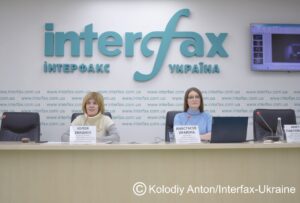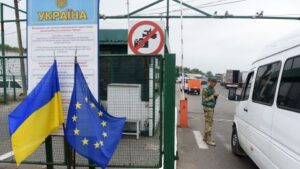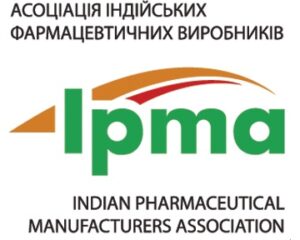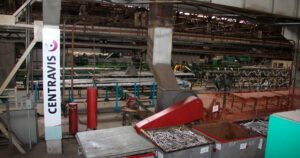
On February 23, the Ukrainian-Polish art project “War through the Prism of Art” was presented in Kiev at the press center of the Interfax-Ukraine news agency.
Art plays an important role in highlighting the horrors of the war and in overcoming its consequences, so the presentation of Ukrainian works in the European scientific and cultural space is very important, said Professor of Kyiv National University of Construction and Architecture, Honorary Restorer of Ukraine Yulia Ivashko.
“In March, a conference will be held at the University of Lodz where the role of the artist and art in covering the war in Ukraine and its post-war reconstruction will be discussed. In addition, exhibitions of works by Ukrainian photographer and defender Sergey Belinsky have already been held in the Czech Opava and Ostrava, and in the near future an exhibition will open in Polish Poznan,” Iwashko said at a press conference in the Interfax-Ukraine news agency on Thursday.

According to her, the tragedy of the war in Ukraine forced everyone to reconsider their system of values.
“Now we Ukrainians are changing the world, and in such projects it is very important to feel a sense of elbow of our European friends, so to speak,” she stressed.

The head of the press service of the 28th separate mechanized brigade of the AFU named after the Knights of the Winter Campaign Sergey Belinsky, who is the author of the works presented at the exhibition, thanked Polish colleagues for their support and stressed that the art project was started since the first days of the war and gradually became not only artistic, but also scientific.
“This is not only an exhibition of photographic works, but also a record of the devastation in the south of our country. In addition to the photo exhibition itself, we have already published two books with photos, descriptions and stories,” said S. Belinsky.
Head of the press service of the 28th separate mechanized brigade of the AFU named after the Knights of the Winter Campaign Sergey Bilinsky, who is the author of the works presented at the exhibition, thanked Polish colleagues for their support and stressed that the art project was started since the first days of the war and gradually became not only artistic, but also scientific.
“This is not only an exhibition of photographic works, but also a record of the devastation in the south of our country. In addition to the photo exhibition itself, we have already published two books with photos, descriptions and stories,” said S. Bilinsky.

According to Anastasia Urakina, an architect and young scholar, a graduate student at the Kyiv National University of Construction and Architecture, war and the risks associated with it can lead to various psychological traumas, such as post-traumatic stress disorder (PTSD), depression, and others. That is why the art project “War through the prism of art” together with the Kyiv think tank “Experts Club” are conducting a course of psychological rehabilitation and art therapy for people of all walks of life – children, disabled people, the elderly and others.
“The groups will be led by professional psychologists and artists, and the classes will be held at the Kyiv-based think tank Experts Club. There will also be art therapy classes and exhibitions of works by Ukrainian artists,” emphasized Urakina.
ART, ART_THERAPY, BELINSKY, EXPERTS CLUB, KNUBA, UNIVERSITY OF LODZ, ІВАШКО, ПАВЛОВСЬКА, УРАКІНА

Ukrainian President Vladimir Zelensky discussed with Egyptian President Abdel Fattah As-Sisi the issues of strengthening food security and cooperation in the opening of food hubs in Africa by Ukraine.
According to the Telegram channel of the Ukrainian head of state on Thursday, the parties also noted the importance of extending the “grain initiative.”
“Supported the goals and principles of the UN Charter, in particular the sovereignty and territorial integrity of states,” the message said. Earlier, the “Club of experts” in a video review analyzed trade and economic relations between Egypt and Ukraine, see more at the link on the channel of the club:

President of Ukraine Volodymyr Zelenskyy confirmed the information about the visit of his American counterpart Joe Biden to Kyiv.
“Joseph Biden, welcome to Kyiv! Your visit is an extremely important manifestation of support for all Ukrainians,” Volodymyr Zelenskyy emphasized.
In turn, the White House commented on the meeting between Biden and Zelenskyy.
“I will announce another shipment of critical equipment, including artillery munitions, anti-tank systems, and air surveillance radars, to help protect the Ukrainian people from aerial bombardment.
And I will share that later this week we will announce additional sanctions against elites and companies that try to evade or engage the Russian war machine,” the White House said in a statement on its website.
After his visit to Kyiv, the US president will travel to Poland.

Net outflow from Ukraine this week increased to 16 thousand people from 8 thousand a week earlier, the State Border Service reported on Facebook.
According to the Ministry, the flow on the way out of Ukraine from February 11 to 17 increased from 219 thousand to 225 thousand people, while on the way in – 211 thousand people.
The number of cars, according to the department, crossed the western border of Ukraine, also remained at the level of 118 thousand, whereas the number of vehicles with humanitarian cargos decreased from 464 to 452.
Polish State Border Service also fixed increase of the net outflow from Ukraine for the last seven days – up to 12 thousand people from 7 thousand people a week before.
According to the Polish Ministry, the weekly flow from Ukraine to Poland increased from 138 thousand people to 146 thousand, whereas the return flow from Poland to Ukraine – from 131 thousand to 134 thousand people.
In total, since the beginning of the war 9.899 million people arrived in Poland from the Ukraine, while 8.021 million people went in the opposite direction.
It was reported that since May 10, the flow into Ukraine through its western border every day for almost a month steadily exceeded the flow out. The net inflow during this time was 188 thousand people. In subsequent weeks there was no such unambiguous trend, except for the week of the new academic year, when net inflow was a record 47 thousand people.
In general, statistics showed a gradual return of Ukrainians to their homes: the net influx for the period from May 10 to September 23 was 409 thousand people.
For the first time since May 10, the number of those who left Ukraine in a week exceeded the number of those who entered at the end of September. At that time, the net outflow was 28 thousand people at once, and one of the possible reasons was a reaction to mobilization in Russia and “pseudo-referendums” in the occupied territories, and then the probable reason was massive shelling of the energy infrastructure. The outflow temporarily stopped in the second half of December and early January for the period of holidays, but from the second week of January it resumed, reaching a total of 193,000 since late September.
According to UNHCR data as of February 14, a total of 18.607 million people left Ukraine since the beginning of the war (not including the flow of people into the country), of which 9.604 million left for Poland, 2.852 million for Russia (data as of October 3), 2.216 million for Hungary, 1.967 million for Romania, 1.163 million for Slovakia, 770.3 thousand for Moldova and 16.7 thousand for Belarus.
At the same time, according to the UN data, 10.297 million people arrived in Ukraine from February 28, 2022 to February 14, 2023 (not including data of Hungary, Russia and Belarus).
Passenger traffic through the western border of Ukraine, thousand.
Date from Ukraine incl. to Poland to Ukraine incl. Ukrainians number of cars of humanitarian trucks, pcs.
17.Feb 34 21 31 28 17 46
16.Feb 35 21 29 26 18 48
15.Feb 31 18 28 24 17 65
14.Feb 31 19 28 25 17 67
13.Feb 31 19 30 27 16 97
12.Feb 33 20 33 30 16 61
11.Feb 30 17 32 28 17 68
10.Feb 34 21 30 27 18 78
09.Feb 32 20 28 25 17 51
08.Feb 31 18 29 25 17 82
07.Feb 29 17 27 24 17 79
06.Feb 27 16 29 27 15 65
05.Feb 31 21 33 30 16 55
04.Feb 35 22 35 31 18 54
Data: State Border Service

The simplified registration procedure for medicines registered in countries with a strict regulatory system stipulated by the Ministry of Health’s order No. 1245 of 2016 is not effective, according to the Indian Pharmaceutical Manufacturers Association (IPMA).
“The simplified procedure stipulated for registration of drugs registered in countries with strict regulatory systems has recently been ineffective, and applicants have had rejections on formal grounds,” the IPMA said.
According to the association, in particular, based on the conclusion of the State Expert Center (SEC), the Ministry of Health appointed a meeting of the Commission on Problematic Issues, where a collegial decision regarding registration was taken, but since February 2022, there was no commission. At the end of 2022, orders were still signed on state registration of medicines registered by the competent authorities of the USA, Switzerland, Australia, Canada, and the EU. At the same time, on February 10, 2023, the Ministry of Health signed an order to refuse state registration of 34 foreign-made drugs.
“We believe that a simplified procedure would work more effectively if the work of the Ministry of Health Commission on Problematic Issues was resumed. The refusal to register 34 medicines of leading foreign manufacturers due to problems in the interpretation of the legislation and on formal grounds is discriminatory and harms the welfare and health of the Ukrainian people in wartime”, the IPMA noted.
The association believes that the order of February 10, 2023, which denied registration of 34 medicinal products registered in countries with strict regulatory systems, should be canceled, and the applicants that were denied registration should have the opportunity to justify the grounds for registration and confirm compliance with legislation.
The IPMA noted that the reason for refusing to register medicinal products, whose applicants are IPMA member companies, could be inconsistencies caused in part by legal requirements and peculiarities of registration in Ukraine.
“We are talking about the first registration of Indian medicinal products whose applicants are members of our Association. These are new high quality medicinal products that have already been evaluated by the competent authorities of the USA, Switzerland, Japan, Australia and Canada and according to the centralized procedure registered by the EU competent authority”, – the IPMA informed.
The association notes that not all analogs of drugs whose registration was denied are currently on the market, but there are new drugs on the list.
“For example, the medicines of one applicant (Zandra Life Sciences Private Limited) submitted for registration under this procedure are new generic medicines that have no analogues in Ukraine, but have already been successfully registered and used in the USA. Their registration in Ukraine will allow Ukrainian patients to use them for treatment”, the IPMA noted.
Earlier Teva-Ukraine also said that the procedure for simplified registration of drugs registered in countries with a strict regulatory system was not perfect initially, but since the beginning of the armed aggression its shortcomings have deepened. According to her data, from 2016 to 2022, the company registered 10 drugs in Ukraine under the simplified procedure and received two refusals, and the last such registration in 2022 lasted 203 days while the standard procedure required 210 days.
As reported, on February 10, the Ministry of Health of Ukraine refused to register 19 foreign medicinal products under the simplified procedure. These drugs were registered in the countries by the competent authorities of the USA, Switzerland, Japan, Australia, Canada and the EU competent authority. In particular, the Ministry of Healthcare refused to register five drugs produced by Teva-Ukraine, nine drugs produced in India, in particular by Glenmark Pharmaceuticals, McLeods Pharmaceuticals and Zandra Life, five drugs from the Turkish company DEVA, as well as drugs from the British company Reckitt Benckiser Healthcare and Pfizer.
The simplified procedure was approved by Order No. 1245 of the Ministry of Health in November 2016. According to which drugs registered in countries with strict regulatory policies – Japan, Switzerland, USA, Canada, Australia, EU countries can be registered in Ukraine under a shortened procedure within 10, 17 or 45 days – depending on the category of registered drugs.
In May 2018, the Ministry of Health initiated the expansion of the list of documents that are provided for the examination of the authenticity of registration materials for drugs (registered in other countries), which are submitted in Ukraine for state registration for the purpose of their procurement by international organizations.

Centravis Production Ukraine PJSC (Centravis Production Ukraine), a part of Centravis Ltd. holding, has brought its main production in Nikopol to full capacity and intends to officially open its pipe production branch in Uzhgorod at the end of February.
“Centravis production is now running at full capacity. This is very valuable, so we use this opportunity to the maximum. All equipment is working, hot and cold shops are operating. We met the production plan for January and have an optimistic outlook for the current month,” Artem Atanasov, chief sales officer (CSO), wrote in a letter to customers last Friday.
According to him, the company will officially open a new production facility in Uzhgorod at the end of February. “We are recording interest in our products from customers, so expanding production in these conditions is an important and necessary step,” the sales director said.
As it was informed, the holding Centravis Ltd. re-registered its parent company in Switzerland, having changed its Cypriot location, which will help to improve credit rating and to attract longer and cheaper funds for the development of production in Ukraine.
“Centravis” plans in the beginning of 2023 to open in Zakarpattya region specialized production of tool tubes for automobiles.
“Centravis is among the ten largest manufacturers of seamless stainless steel tubes in the world. In 2022 the company has implemented a number of large-scale orders for such global companies as Benteler Automotive, LINSTER Edelstahlhandel, Rohr Mertel, Buhlmann Group, Webco, MRC. The company employs over 1400 people.
Centravis, founded in 2000, is one of the world’s largest manufacturers of seamless stainless steel pipes. Its production facilities are located in Nikopol (Dnipropetrovsk region).
Holding Centravis Ltd. was created on the base of Nikopol Stainless Tube Works CJSC, service and trade companies Industrial and Commercial Enterprise Yuvis Ltd. Its shareholders are members of the Atanasov family.
Centravis Ltd. owns 100% of shares of Centravis Production Ukraine PJSC.